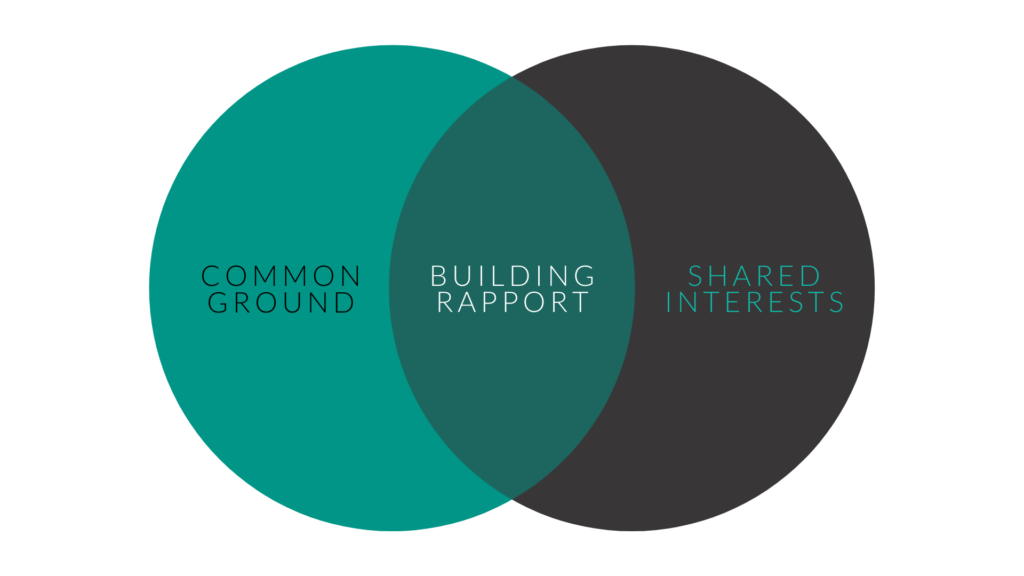
My last article discussed the similarities between first interviews and first dates, and I concluded that the feeling you leave your interviewer with is just as important as what you say. Let’s explore how to build rapport in a job interview.
So how can you ensure that your leave your interviewer feeling professionally warm and fuzzy?
Of course, sometimes two people will naturally and effortlessly ‘click’. People who are friendly, open and energetic are generally also affable, and will find it easy to build rapport with anyone they come across. For others (or where your counterpart is none of those things), a little more effort and strategy is required.
As a starting point, rapport can be most easily built upon a foundation of common ground. In an interview setting, this means (1) identifying areas where you and your interviewer are on the same page, and then (2) finding a way to steer the conversation towards those areas.
Identifying common ground with your interviewer
You might find common ground with your interviewer in any element of your work life: Do you share a passion for the same type of work? Do you both value similar cultural working environments? Do you have a shared philosophy or outlook on your profession?
However, it’s not easy to try to predict in advance how your interviewer feels about those things. A much easier strategy is to go into your interview with an open mind and listen out for what information they choose to share with you about themselves or their organisation within the interview’s limited time. Chances are, the information they choose to share is the information that’s most important to them.
One area of interest that you can predict in advance is a simple one – your interviewer themselves. If you can demonstrate that you are genuinely interested in your interviewer’s personal or professional story, then you can consider that a point of common interest
Demonstrating that you and your interviewer have shared values or interests
After you’ve identified your interviewer’s values or interests that intersect with your own, your next challenge is to steer the conversation in that direction so you can demonstrate that these are shared values.
Even more effective than telling your interviewer that one of their interests is actually a shared interest, you can show them, by asking a question about it. The questions you choose to ask will demonstrate what’s most important to you.
To help the flow of your interview, the best time to ask a question about a particular topic is while that topic is already being discussed. It’s also the easiest time, as you don’t need to prepare those questions in advance. You can simply ask your interviewer to clarify or elaborate on the information they’re sharing.
In summary, knowing how to build rapport in a job interview will help you find ways to ask your interviewer the questions they want to be asked. You enable them to spend time sharing information that’s most important to them, and they’ll walk away feeling that connection that comes from establishing common ground.